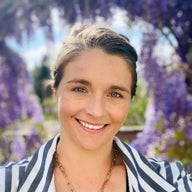We strongly believe that technology can and should work to make the world a more trustworthy place. That’s why we work with customers and partners that are trustworthy, too, and continue to support nonprofits and open-source projects through our Open Source and Nonprofit Program. One such partner is Tech For Good — an organization that strives to provide technology solutions to underrepresented communities.
Through their work, Tech for Good has changed countless lives for the better. They introduce historically underserved communities to computer science by hosting classes and lectures at local community and youth centers. By leveraging partnerships with community centers, internet service providers, and network infrastructure providers, Tech For Good works to provide everyone with access to a high-speed internet connection. In addition, they help prevent the improper disposal of electronic devices by setting up collection drives, and properly disposing of collected materials at refurbishment centers.
To learn more about this organization and their work, we sat down with their CEO, Srivishnu Piratla.
Hannah: Tell us more about Tech for Good. How did you get involved?
Srivishnu: We're a nonprofit based in the local Boston area. Two years ago, a couple of friends and I started building stuff to help people, and we started teaching classes to local youth in our community. We realized we could have a greater impact if we formed an actual nonprofit.
Since that point we've been growing. Our organization represents how technology can be used for good. We live in a world of mega-corporations, where some try to give back to help people, but others don’t. At the end of the day though, they still have to focus on profits. We want to build and use tech in a way that isn't based on profits — that is focused on helping people. And we want to encourage others to do the same.
Hannah: What are some of the most impactful things Tech for Good has done in the community?
Srivishnu: Number one, we teach classes. We've taught over 500 kids at this point, and they're mostly from underserved communities in the local Boston area. We want to expand the classes we offer, and we plan to expand our classes to help more communities. We've recently been in Dorchester and Springfield, and are exploring other areas around here that are underserved. We hope to grow into other states and countries too.
Two, we are working with an Indian organization called Ekal. We're developing a system right now to provide satellite internet to rural schools, and provide education offline. We plan to develop this system into a full package to be deployed to other rural schools and educational facilities all over the world. Our goal is to provide internet connectivity to these very, very rural areas in India where there's no cellular, and satellite reception is kind of low.
Hannah: That sounds incredible — and I’m sure so much goes into getting that off the ground. What are some of the challenges you've had working on that project?
Srivishnu: Cost is definitely a concern. So what we are doing is building a network that will offload all the requests that users have during the daytime hours into nighttime hours, when satellite internet is at its cheapest. We are planning to use Fastly to do that, getting as close to the edge of the network and our users as possible, minimizing lag. From there we're able to distribute educational materials to those people, which is really helpful.
Hannah: So how can folks get involved with Tech for Good?
Srivishnu: There are three ways. Number one is volunteering. We teach a good amount of classes and we do a good amount of development, too. We create a lot of educational materials, so we're always looking for help with that. It doesn’t matter your skill sets, we're always open to train volunteers for anything.
Second is internships. This is actually a pretty big one. Every summer we run an intern program. This past summer we had about 40 interns from 20 different colleges. At the very beginning of the year, we bring the intern group together to learn about what they'd like to do and what they'd like to accomplish over the summer. Then based on that, we group them together and create projects that involve those objectives. Again, all projects that help the community. Throughout the summer, we give them mentorship, resources, feedback, and guidance. Then at the very end, we're able to open source their projects, so that the broader community can capitalize on and contribute to their work. And of course, their prospective employers can take a look at the projects too.
And third, donate. Just like any other nonprofit, it costs us money to be able to do the stuff that we do. Every dollar makes a difference.
Hannah: On that note, as someone who’s doing so much for your community, what advice would you give to someone looking to get involved in volunteering locally?
Srivishnu: First and foremost, it’s important to give back to your communities any way you can. It doesn't have to be in tech: volunteer at a food pantry or a senior care facility. Anything will work. As long as you're willing to do good, there's always a way that you can help. Lead by example. I mean, if you start helping, your other colleagues will start helping — and you might start a movement.
We’re proud to support organizations like Tech For Good through our Open Source and Nonprofit Program. Learn more about the program, and see how you can get involved.
